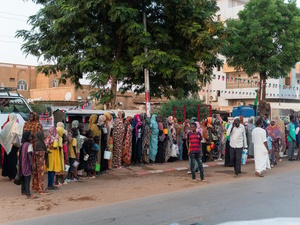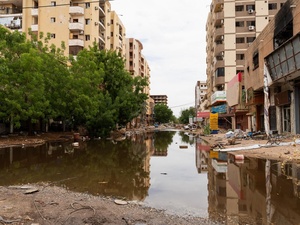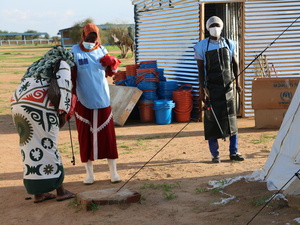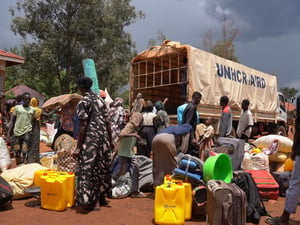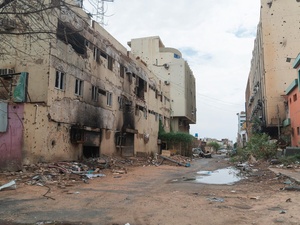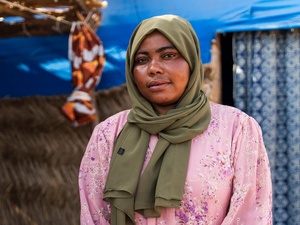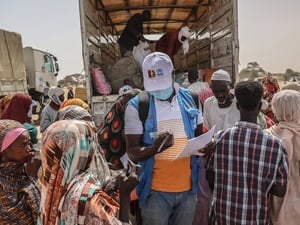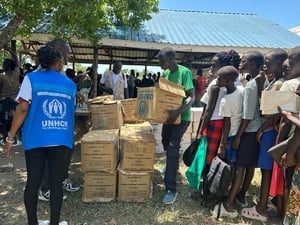Feature: Refugees get trump card - and identity - in Kenya
Feature: Refugees get trump card - and identity - in Kenya

Sudanese refugees receiving their identity cards at Kakuma camp.
KAKUMA, Kenya (UNHCR) - Ayen Ajok scrutinises her photo on the new identity card she has just received from government officials at the refugee camp in Kakuma, Kenya. Smiling bashfully, she feels the plastic of the laminated card, the first-ever document with her own name and photograph.
A few metres away, there is uproarious laughter from a crowd of refugees, excitedly inspecting their new cards. Watching them, the mother of four wraps her card in a handkerchief, tucks it inside her blouse and walks back, more upright than before, to her hut in the refugee camp she has called home for the last 10 years.
Ayen is part of a first group of some 21,000 Sudanese refugees who have recently received refugee identity cards from the government of Kenya. This is the first time in 10 years that the East African country is issuing IDs to refugees. Under the current plan, the government will issue the documents in several phases to more than 100,000 refugees aged over 18 in Kenya. They represent nearly half the country's refugee population of 230,000.
Each card has the refugee's full name, photo and other details about his or her camp of residence and country of origin. Ayen and many like her who have received this first batch of cards are from Sudan, a country whose 18-year-old war has displaced more than half a million southern Sudanese to neighbouring countries like Kenya.
The first phase of issuing ID cards completed last week in Kakuma is the culmination of three years of work by Kenya's registration bureau. In 1999, scores of officials from the government department charged with registration spent weeks in the remote camp close to Kenya's northern border with Sudan. They took down meticulous details, including photos and fingerprints, from the refugees in preparation for their registration. All this information has been entered into the country's database, making it possible for the government to verify a person's identity.
"These cards could change the lives of many refugees in Kenya. We should see less intimidation, harassment and even arbitrary arrests of refugees," said George Okoth-Obbo, UNHCR's Representative in Kenya.
The refugee ID cards will be as valid as Kenyan ID cards. These are used as proof of identity in banks, with authorities, including police, insurance, schools and colleges, and for other administrative business.
For refugee women like Ayen, the ID card issued to her last week also meets one of five pledges to refugee women made by the UN High Commissioner for Refugees, Ruud Lubbers, in June 2001. The UNHCR chief pledged that the organisation would strive to ensure that male and female refugees are registered individually and receive individual documentation. Lubbers noted that the lack of individual papers equals lack of autonomous legal status.


